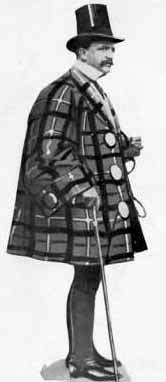Dude
Dude is a term that has evolved in its usage and meaning over time, originating in the American English language. It is commonly used informally to address an individual, typically male, though its application has broadened to include any gender. The term has its roots in the early 19th century, but its meaning has shifted significantly from its original connotation.
Etymology[edit | edit source]
The word "dude" initially referred to a man overly concerned with keeping up with the latest fashions, akin to what might today be called a "dandy." It is believed to have originated in the Eastern United States, possibly deriving from the Scottish word "duds" meaning clothes. Over time, the term evolved in American culture, shedding its original associations with fastidious dress and coming to denote a person, usually male, in a more general sense.
Cultural Evolution[edit | edit source]
In the late 20th century, "dude" began to be associated with surf and skateboard culture, embodying a laid-back, cool demeanor. This association helped to further popularize the term and broaden its usage beyond a specific type of person to a casual form of address among friends or strangers, regardless of their interest in surfing or skateboarding.
Modern Usage[edit | edit source]
Today, "dude" is used widely across different contexts and demographics to refer to a person in a casual or informal manner. Its usage can convey camaraderie, surprise, disbelief, or other emotions, depending on the context. The term has also been adopted in various forms in other languages, reflecting its widespread recognition and versatility as a part of colloquial speech.
Gender and "Dude"[edit | edit source]
While traditionally associated with males, the term "dude" has grown to be used in a gender-neutral manner. This shift reflects broader changes in language and society's understanding of gender, with "dude" now commonly used to address people regardless of their gender identity.
In Popular Culture[edit | edit source]
"Dude" has made significant inroads into popular culture, featuring prominently in movies, music, and television. It is often used to signify a particular type of American cultural identity, one that is laid-back and unpretentious. The term's prevalence in media has helped to cement its place in the English language as a versatile and enduring term.
Conclusion[edit | edit source]
From its origins as a term for a fastidious dresser to its current status as a ubiquitous form of casual address, "dude" has undergone a significant transformation. Its evolution reflects changes in society and language, showcasing the fluid nature of colloquial speech. As language continues to evolve, "dude" remains a fascinating example of how words can shift in meaning and usage over time.
Navigation: Wellness - Encyclopedia - Health topics - Disease Index - Drugs - World Directory - Gray's Anatomy - Keto diet - Recipes
Search WikiMD
Ad.Tired of being Overweight? Try W8MD's physician weight loss program.
Semaglutide (Ozempic / Wegovy and Tirzepatide (Mounjaro / Zepbound) available.
Advertise on WikiMD
WikiMD is not a substitute for professional medical advice. See full disclaimer.
Credits:Most images are courtesy of Wikimedia commons, and templates Wikipedia, licensed under CC BY SA or similar.Contributors: Prab R. Tumpati, MD


